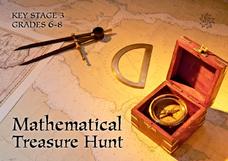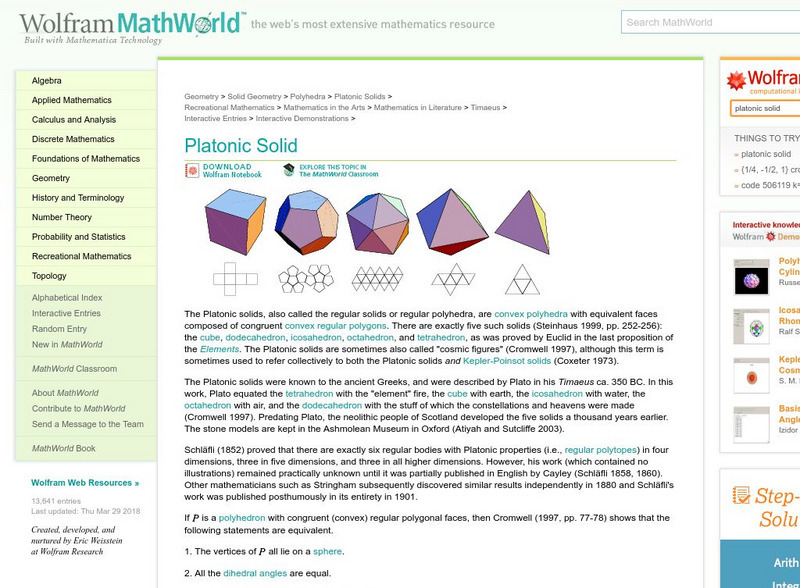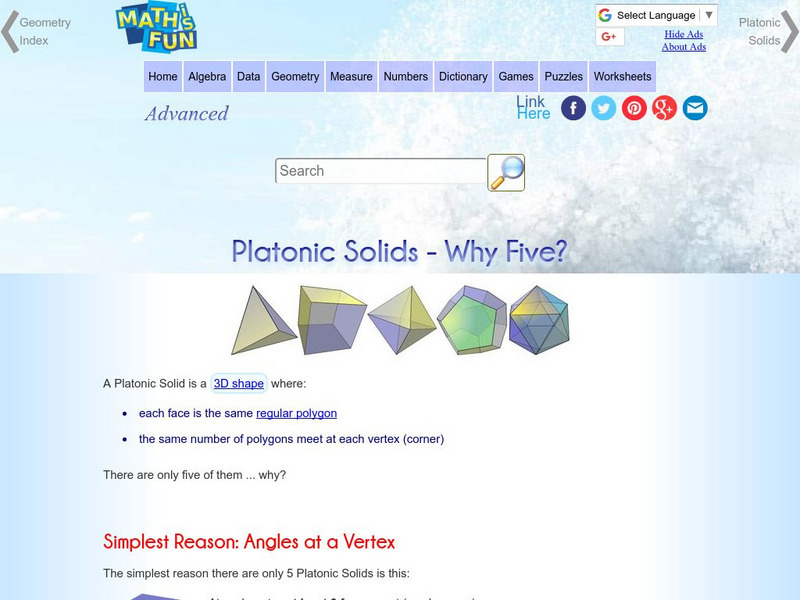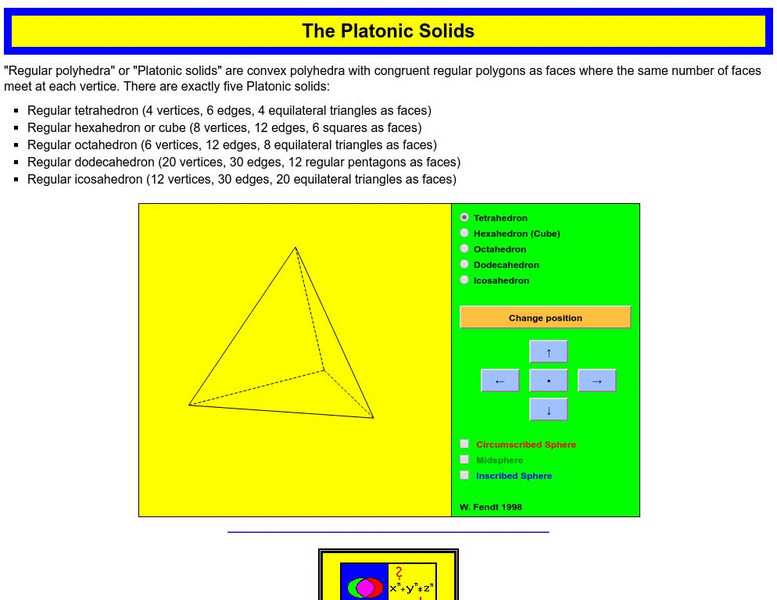Curated OER
Mathematical Treasure Hunt
The hunt is on! Young mathematicians follow clues and complete a series of ten math puzzles as they try to crack Dr. Integer's code and find the location of his hidden treasure.
Curated OER
Countdown Challenge: Platonic Solids - Part I
Use a Platonic solids worksheet to record the number of faces, edges, and vertices of five polyhedra whose faces, edges, and vertices are all identical. For each figure, learners write a proof of Euler's formula (F+V=E+2). They create a...
Curated OER
Countdown Challenge: Platonic Solids - Part II
In this platonic solid worksheet, students observe five solids and draw a net of each three-dimensional figure. Students examine a tetrahedron, an octahedron, an icosahedron, a cube, and a dodecahedron. This is a one-page worksheet.
Curated OER
Tetrahedron
In this math worksheet, students construct a paper model of a tetrahedron. They create it to have four triangle faces, four vertices and six edges.
Wolfram Research
Wolfram Math World: Platonic Solids
This site, which is provided for by Math World, is a lengthy site describing the various properties and mathematical explanations of the figures.
Wolfram Research
Wolfram Math World: Tetrahedron
This math site defines a tetrahedron, gives reference to the Platonic solid, and gives views from varying perspectives. It also provides formulas for veritices of a tetrahedron lieing along the the positive X axis, formulas for area,...
Oswego City School District
Regents Exam Prep Center: Platonic Solids
Did you know that the five regular platonic solids (tetrahedron, octahedron, icosahedron, cube, and dodecahedron) were thought to represent earth, air, fire, water, and the universe? This chart shows an image and provides a description...
Annenberg Foundation
Annenberg Learner: Geometry 3 D Shapes: Platonic Solids
Learn about platonic solids, a special type of polyhedra. Read a definition, make three-dimensional models using printouts, and play with an interactive animation, which will show you the faces, vertices, and edges on platonic solids:...
Math Is Fun
Math Is Fun: Platonic Solids: Why Five?
Use Euler's Formula and properties of known platonic solids' faces, edges, and vertices to determine why only five platonic solids exist.
Walter Fendt
Walter Fendt: The Platonic Solids
A short interactive activity to visualize the different platonic solids. You can also change the axis of rotation.
Creative Science Centre
Creative Science Centre: Shapes Platonic and Archimedean Solids
The 'Platonic solids' are three-dimensional shapes formed by putting together identical regular faces. Every corner and every edge is identical to every other corner and edge. There are five such 'solids': the tetrahedron, cube,...
Other
Polyhedra: The Five Platonic Solids
A brief site that includes some activities to understand the figures.













